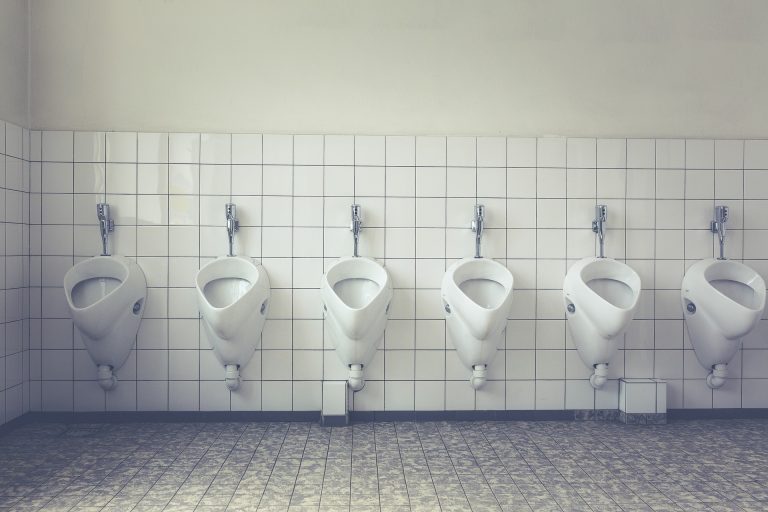Although urinary problems are sometimes overlooked by men, they are actually quite common and potentially dangerous.
Symptoms involving frequent urination, urgency, weak flow or even having trouble urinating are unfortunately shrugged off by a large percentage of men who view these issues as being “just temporary” or as “just a part of life”.
This is regrettable because, in most cases, treatment of urinary symptoms can provide a much better quality of life and, as aforementioned, some of these symptoms can be underlying serious diseases that may require immediate medical attention.
Urinary symptoms can vary, however here is a list of common urinary symptoms in men:
If you are experiencing any of these urinary symptoms, talk to your doctor. Meanwhile, here is a list of common causes of urinary problems and how to treat them.
As you age, your kidneys and your bladder change. Your kidney mass and functions decrease and your bladder tissues become stiffer and less stretchy, which makes it harder to hold as much urine as before. The bladder muscles also become weaker.
These changes can cause a variety of urinary symptoms that can further damage the urinary system. Reducing these symptoms can be beneficial to your quality of life and to reduce further possible damage to your urinary system.
Although there is no treatment for aging, treatments are available to reduce the effects of aging on the urinary system. These treatments can include lifestyle and behavioural changes, medicines, exercises, minimally invasive treatments, surgery or a combination of these and other treatments.
If you are over fifty and are experiencing urinary symptoms, consult your doctor to determine what is the best treatment plan for you.
Doing this will not only detect other, potentially dangerous, medical conditions, but it will also reduce symptoms and provide you with a better quality of life.

Benign prostatic hyperplasia (BPH) is a noncancerous increase in size of the prostate gland. It is not caused by inflammation (prostatitis) or cancerous growth (prostate cancer).
The prostate gland is right below the bladder and surrounds the urethra, the duct that drains urine from the bladder out of the body. The prostate is a part of the man’s reproductive system, and its main function is to release seminal fluid that “protects” sperm during ejaculation. The average prostate gland is about the size of a walnut, however, as men get older, the prostate tends to enlarge. For some men, the prostate becomes big enough to press on the urethra, causing urinary problems or even blockage.
Although symptoms caused by BPH can be quite bothersome, in most cases, the condition in itself is not life threatening. Nevertheless, persisting symptoms should not be ignored. If left untreated, BPH can cause repeated urinary tract infections, bladder stones, bladder and/or kidney damage, and, in severe cases, acute urinary retention (sudden inability to pass urine).
A large portion of men suffering from BPH, will be able to reduce their symptoms by simply making a few lifestyle changes such as reducing their caffeine and alcohol intake or doing pelvic floor exercises to strengthen their pelvic muscles. However, in other cases, medical treatment will be required.
Medical treatments include medication, traditional surgery or minimally invasive therapies such as the Rezūm water vapour therapy.
If you are experiencing urinary symptoms caused by benign prostatic hyperplasia, it is important to see your doctor to determine the severity of your BPH symptoms.
Some medications are known to cause urinary symptoms. If you are taking medication such as diuretics, laxatives and antidepressants, you may be experiencing side effects related to your urinary system.
Some health conditions can become the cause of various bladder problems. Such conditions include diabetes, Alzheimer’s disease, spinal cord injuries, multiple sclerosis, obesity, stroke, high blood pressure and Parkinson’s disease.
Cancer patients undergoing some chemotherapy treatments can also experience urinary problems.
If you are suffering from a medical condition that can cause urinary symptoms, seek medical attention. Your doctor will be able to provide you with an appropriate treatment that will reduce your urinary symptoms.

If you have recently started experiencing urinary symptoms, it is important to see your doctor as soon as possible.
Your doctor will be able to help you determine the cause of your urinary problems and the best ways to relieve your symptoms.
955 Boul. Saint Jean, Suite 402
Pointe-Claire, QC
H9R 5K3
© 2023 Sanomed, All rights reserved. Website by Lifter
Request A Consultation Appointment
Please complete this appointment request form and we will call you back to review how to prepare, and to confirm your appointment date and time. Thanks.